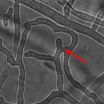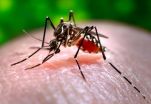(Press-News.org) Over 60 million Americans are thought to experience mental illness in a given year, and the impacts of mental illness are undoubtedly felt by millions more in the form of family members, friends, and coworkers. Despite the availability of effective evidence-based treatment, about 40% of individuals with serious mental illness do not receive care and many who begin an intervention fail to complete it. A new report, published in Psychological Science in the Public Interest, a journal of the Association for Psychological Science, investigates stigma as a significant barrier to care for many individuals with mental illness.
While stigma is one of many factors that may influence care seeking, it is one that has profound effects for those who suffer from mental illness:
"The prejudice and discrimination of mental illness is as disabling as the illness itself. It undermines people attaining their personal goals and dissuades them from pursuing effective treatments," says psychological scientist Patrick W. Corrigan of the Illinois Institute of Technology, lead author on the report.
"One does not work long on mental health issues before recognizing the additional hardships caused by stigma," write Former U.S. First Lady Rosalynn Carter, Rebecca Palpant Shimkets, and Thomas H. Bornemann of the Carter Center Mental Health Program in a commentary that accompanies the report. These problems continue today, they add, in the form of poor funding for research and services compared to other illnesses; structural forms of discrimination; and "widespread, inaccurate, and sensational media depictions that link mental illness with violence."
In the report, Corrigan and co-authors Benjamin G. Druss of Emory University and Deborah A. Perlick of Mount Sinai Hospital in New York synthesize the available scientific literature, identifying different types of stigma that can prevent individuals from accessing mental health care.
Public stigma emerges when pervasive stereotypes — that people with mental illness are dangerous or unpredictable, for example — lead to prejudice against those who suffer from mental illness.
The desire to avoid public stigma causes individuals to drop out of treatment or avoid it entirely for fear of being associated with negative stereotypes. Public stigma may also influence the beliefs and behaviors of those closest to individuals with mental illness, including friends, family, and care providers.
Corrigan and colleagues note that stigma often becomes structural when it pervades societal institutions and systems. The fact that mental health care is not covered by insurance to the same extent as medical care, and the fact that mental health research is not funded to the same levels as medical research, are two clear indications that stigma targeted at mental illness continues to exist at the structural level.
In the face of these realities, the report identifies approaches to addressing stigma that can help increase care seeking among those with mental illness. These approaches operate at various levels, from promoting personal stories of recovery and enhancing support systems, to instituting public policy solutions that enhance actual systems of care.
Researchers, advocates, and care providers have made gains over the past few decades in increasing the number of people receiving adequate and appropriate mental health care, but stigma remains a significant barrier to care. The new report surveys existing scientific research on mental health care participation as a way of advancing efforts to eradicate this barrier.
"This issue of Psychological Science in the Public Interest makes a strong start in consolidating and disseminating what we now know — that public policy, the law, and media remain our greatest resources to stimulate change and spur action," Carter, Palpant Shimkets, and Bornemann write in their commentary. "We also need to build bridges to other fields that connect to mental health, such as public health, primary care, and education."
In taking this integrative, multi-level approach, they are confident that there is hope for the future:
"Together, we can create robust systems and services all along the path of recovery and encourage early intervention and access to treatments without fear of labels or diminished opportunities. When that is achieved, we will know that our tireless efforts to eradicate stigma have been successful."
The report, "The Impact of Mental Illness Stigma on Seeking and Participating in Mental Health Care," and the accompanying commentary, "Creating and Changing Public Policy to Reduce the Stigma of Mental Illness," are available online for free to the public at http://www.psychologicalscience.org/index.php/publications/mental-illness-stigma.html.
INFORMATION:
The manuscript was made possible in part by National Institute of Mental Health Grant MH08598 (to Patrick W. Corrigan) and Grant MH075867 (to Benjamin G. Druss).
For more information about this report, please contact: Patrick Corrigan at corrigan@iit.edu.
For a copy of the report "The Impact of Mental Illness Stigma on Seeking and Participating in Mental Health Care" and access to other Psychological Science in the Public Interest research findings, please contact Anna Mikulak at 202-293-9300 or amikulak@psychologicalscience.org.
Stigma as a barrier to mental health care
2014-09-05
ELSE PRESS RELEASES FROM THIS DATE:
An 'anchor' that keeps proteins together
2014-09-05
All organisms react to different external and internal stimuli: if, for example, the hyphae fungus Sordaria macrospora is supplied with food, it produces fruiting bodies as part of its oestrous cycle. To initiate this reaction, signals have to be transmitted within the cell, which are conveyed by proteins. Physical proximity is a fundamental requirement for different proteins to be able to communicate with each other. Generating that proximity is what scaffolding proteins do, by binding like an anchor to several proteins and keeping them together for the duration of signal ...
Use of dengue vaccine may cause short-term spikes in its prevalence
2014-09-05
CORVALLIS, Ore. – As researchers continue to work toward vaccines for serious tropical diseases such as dengue fever, experts caution in a new report that such vaccines will probably cause temporary but significant spikes in the disease in the years after they are first used.
This counter-intuitive and unwanted result could lead to frustrated policy makers, a skeptical public and concerns that the vaccine is making things worse instead of better, researchers say.
In fact, it will just be the natural result of complex interactions between less-than-perfect vaccine protection ...
E-cigarettes: Studies presented at the ERS Congress
2014-09-05
Munich, Germany: The latest evidence on the potential benefits and risks of e-cigarettes has been presented this week at the European Respiratory Society's International Congress in Munich.
Electronic cigarettes have received much attention in recent years as their use has increased across Europe. As the devices are relatively new, there is little long-term evidence detailing the potential harm or benefit that these devices can cause.
During the ERS Congress, a number of abstracts will be presented on the topic. The key outcomes are revealed here:
Research into ...
IBD patients: Consider giving infliximab a second try
2014-09-05
Bethesda, MD (Sept. 5, 2014) — Restarting infliximab therapy after a drug holiday is safe and effective for patients with inflammatory bowel disease (IBD), according to a new study1 in Clinical Gastroenterology and Hepatology, the official clinical practice journal of the American Gastroenterological Association.
"Our findings suggest that starting infliximab after a history of prior therapy can be very beneficial to patients," said lead study author Filip Baert, MD, PhD, from the department of gastroenterology, University Hospitals Leuven in Belgium. "Most striking, ...
New blood test could offer more tailored treatment of ovarian cancer
2014-09-05
A new blood test allowing doctors to predict which ovarian cancer patients will respond to particular types of treatment is a step closer following a new study by Manchester scientists.
Researchers from The University of Manchester and The Christie NHS Foundation Trust - both part of Manchester Cancer Research Centre - say the test could be developed and used in hospitals within the next few years.
It would mean medics could see which patients could benefit from blood vessel-targeting drugs - such as bevacizumab - in addition to conventional therapy. Meanwhilehile others ...
California blue whales rebound from whaling, first of their kin to do so
2014-09-05
The number of California blue whales has rebounded to near historical levels, according to new research by the University of Washington, and while the number of blue whales struck by ships is likely above allowable U.S. limits, such strikes do not immediately threaten that recovery.
This is the only population of blue whales known to have recovered from whaling – blue whales as a species having been hunted nearly to extinction.
Blue whales – nearly 100 feet in length and weighing 190 tons as adults – are the largest animals on earth. And they are the heaviest ever, weighing ...
Glanville fritillary genome sequenced at the University of Helsinki
2014-09-05
The Glanville fritillary has long been an internationally known model species for ecology and evolutionary biology, whose population biology has been studied on the Åland Islands for more than twenty years. Now the species has become even more significant. Led by Research Professor Ilkka Hanski, the Metapopulation Research Group (MRG) at the University of Helsinki has sequenced the full genome of the Glanville fritillary together with three groups from the Institute of Biotechnology at the same university.
Before the sequencing of the Glanville fritillary genome, which ...
Near-extinct African amphibians 'invisible' under climate change
2014-09-05
An international team of researchers has found that the majority of threatened species are 'invisible' when using modern methods to predict species distributions under climate change.
Using African amphibians as a case study, the researchers found that more than 90 per cent of the species listed as threatened on The IUCN Red List of Threatened Species are omitted by the most popular tools for species distribution modelling.
The study, led by researchers from the Universities of York and Copenhagen and the United Nations Environment Programme World Conservation Monitoring ...
Caffeine therapy for apnea of prematurity does not have long-term harmful effects on sleep
2014-09-05
Caffeine therapy for apnea of prematurity has no long-term harmful effects on sleep or control of breathing, according to a new study of 201 preterm children assessed at ages 5-12, the first study in humans to examine the long-term effects of neonatal caffeine treatment on sleep regulation and ventilatory control.
"Animal studies have suggested that administration of neonatal caffeine to premature infants, while improving survival and other outcomes, may have long-term detrimental effects on sleep and control of breathing during sleep," said lead author Carole L. Marcus, ...
Research finds no association between wearing a bra and breast cancer
2014-09-05
PHILADELPHIA — A population-based case-control study found no association between bra wearing and increased breast cancer risk among postmenopausal women, according to research published in Cancer Epidemiology, Biomarkers & Prevention, a journal of the American Association for Cancer Research.
"There have been some concerns that one of the reasons why breast cancer may be more common in developed countries compared with developing countries is differences in bra-wearing patterns," said Lu Chen, MPH, a researcher in the Public Health Sciences Division at Fred Hutchinson ...



